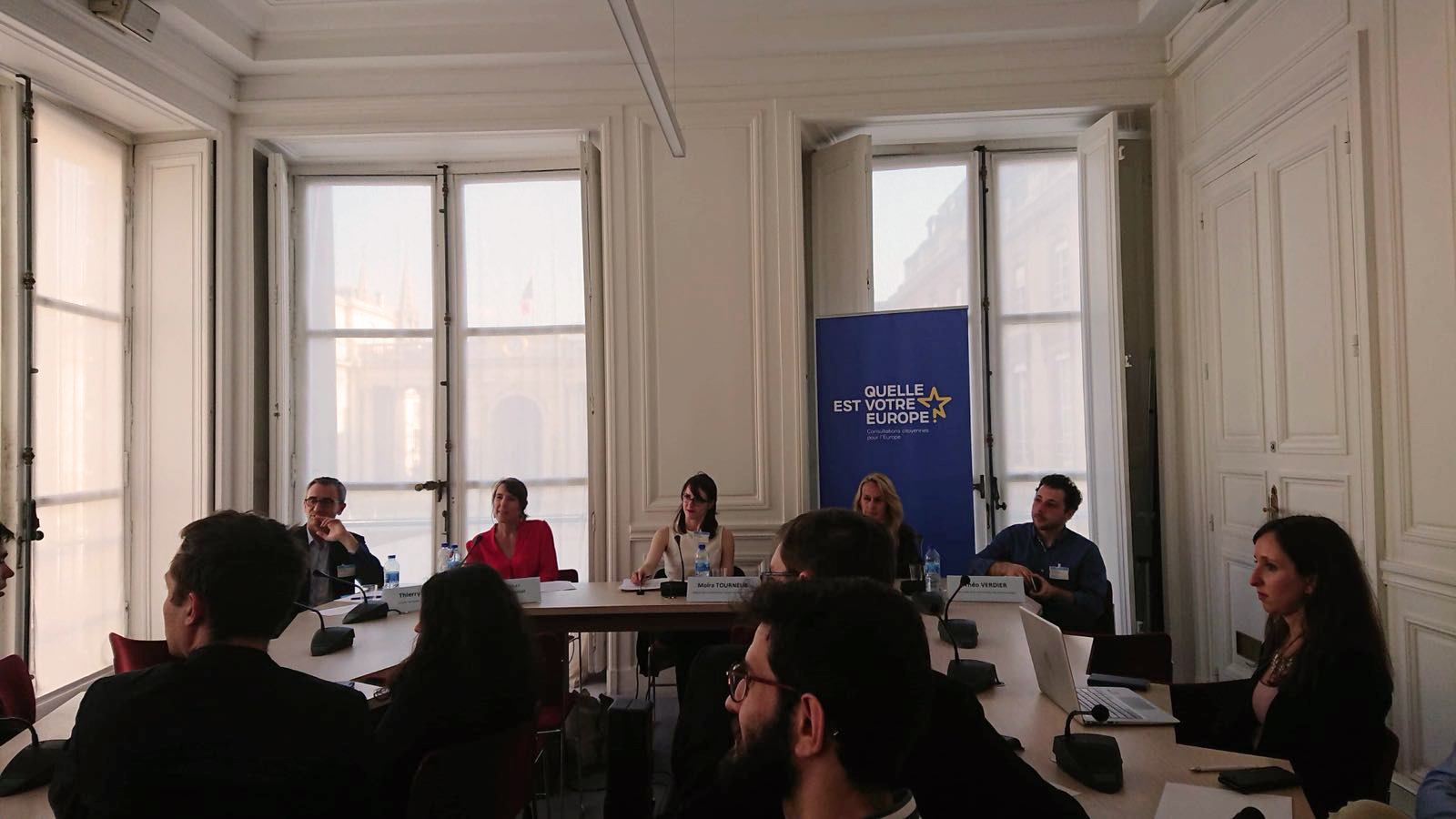
Written by Juuso Järviniemi
Disclaimer: This article has already been published with The New Federalist. You can find it here.
Many say that the great Western political conflict of the 21st century won’t be over economic redistribution, but between cosmopolitanism and nationalism, or between modern and “traditional” values. The argument goes that as voters have more food on the table, they start paying more attention to immaterial questions like same-sex marriage and refugee rights.
It’s easy to exaggerate this. For example, two-thirds of the voters of Donald Trump, who was touted as the candidate of blue-collar Americans despite coming from the traditionally more right-wing Republican party, were from the richest 50% of the electorate in the 2016 US presidential election (Carnes & Lupu, 2017). Still, when one looks at the UK’s bitter divide over issues as varied as Brexit and vegan sausage rolls (Robertson, 2019), and France where Emmanuel Macron is opposed at both ends of the political spectrum, it’s not too far off to say that times they are a–changin’.
In the last century, the centre–right and the centre-left emerged as the two main political forces to represent the cleavage between those who want more taxes and those who want less. On the nationalist–cosmopolitan axis, on the other hand, the nationalists typically seem to be represented by one party or perhaps two (the far–right and the far-left), while a variety of moderate parties are on the rather “cosmopolitan” side, some more avowedly than others.
If the main political choice of tomorrow concerns vegan sausages, or shooting refugees at the border (Beale, 2016), can we expect the party system to coalesce around two standard–bearers for these propositions? And if yes, whose inheritor will the catch-all cosmopolitan party be? Finally, what does all of this mean for the EU–level party system?
Who owns progressive values?
The realignment witnessed so far has benefited different types of progressives in different countries. In France, Emmanuel Macron has, in the end, tilted towards the centre–right (Brunet, 2018), while in Germany the Greens are on the rise at the expense of the Social Democrats (Ridgwell, 2018). The phenomenon is similar across borders, but manifests in diverging manners according to the national political context. Who successfully brands themselves as the most credible opposition to the evils of nationalism and authoritarian values wins an electoral advantage; yet so far, the party that comes out on top isn’t the same in every country.
Or perhaps it’s not just one party on either side. It seems that the European Parliament will attain this spring, more pronouncedly than before, a coalition of pro-EU and pro-liberal consensus (rule of law, free press, human rights and the like) parties, which will face off against the anti–EU, anti–liberal consensus coalition. On the old left-right spectrum, Swedish politics has in recent years been restructured into two coalitions in much the same way. The Social Democrats tend to work with the Greens and the Left Party, while the centre–right Alliance is comprised of the Moderate Party, the Centre Party, the Christian Democrats and the Liberals. Similarly to the European elections, progressive parties mainly compete amongst themselves over who gets to lead the coalition. To take the analogy even further, we may ask if, for example, conservative parties can act as “king–makers” choosing to help either main bloc to win a majority by building a coalition, like the German liberals often did between the right and the left.
In the UK, the Labour Party is divided over Brexit―the party leader Jeremy Corbyn on one side, while virtually the entire membership of the party on the other―as a result of which Corbyn is more comfortable preaching on traditional issues of income distribution. A party divided on Europe would rather easily resort to emphasising issues on which the supporters are united, for fear of alienating parts of the (perceived) divided electorate. More generally, as may be the case for the traditional centre–left and centre–right parties, division amongst a party’s politicians or electorate on the characteristic questions of the 21st century may create obstacles on the way to the progressive throne.
Rebranding is a complicated business, which is why it might not be surprising that parties which were specifically created to address the great new cleavage can navigate it with greater ease. So far, though, only in France has the newcomer party, En Marche, gained a near-monopoly of the progressive field, perhaps in part due to the somewhat majoritarian electoral system. Elsewhere, one might tentatively expect a progressive coalition led by an avowedly “modern” party, but supported by parties defined on the left–right axis. Politics à la Sweden, but with a 21st–century twist.
Now translate this to the EU level
The EU–level party system is already a confusing mess without a major realignment taking place at the same time. We might need to face two simultaneous tectonic shifts: the slow emergence of cohesive Europe–wide parties, combined with a shift in the main political cleavages. How do you go about this?
The ‘great realignment’ happens at a different pace in different countries, and national–level politics simply don’t work the same way everywhere. You have France, and then you have Ireland where Fine Gael and Fianna Fáil don’t seem to be going anywhere. As was noted earlier, not even the ‘pure progressives’ come in the same form everywhere. This seems to be one more reason to believe that coalition politics is the likely way forward in the European Parliament.
Maintaining a coalition tends to be harder work than keeping just one party together.
In Sweden, the lack of unity over the question of working with the far–right Sweden Democrats has been causing a headache for the centre–right alliance (“Alliance split”, 2018). As a result, the Liberals and the Centre Party seem poised to jump to the other side of the fence in the ongoing, prolonged government formation negotiations (Billner & Lindeberg, 2019).
In the European Parliament, then, the job of the various pro–liberal consensus groups would be to hold the coalition together. In traditional left–right politics, both sides respect the other’s right to govern if they win the popularity contest next time, while in the 21st–century divide it’s not certain whether the other side will let go of power once it has had a taste of it. One just has to look to Hungary, or the Republicans in the United States in order to see this shift in power dynamics (Ax, 2018).
Of course, the better the progressive coalition fares, the more room there is for internal squabbles―when you have three–quarters of the seats, you can lose almost a third of your own and still hold the majority, a luxury you can’t afford when it’s 50/50 like in Sweden today. (A bigger majority also means there’s more room for genuine choice between different kinds of progressives.) With “rise of populism”–themed prophecies abounding, it’s still best to be prepared. Whether it’s newcomer parties, traditional ones, or no one specific party who emerge as discernible standard–bearers of 21st–century progressive values, those on the pro–liberal side of the divide had better get used to the idea of sticking together, and standing behind whoever in their coalition happens to be strongest at the time.
Juuso Järviniemi is an undergraduate student in International Relations at the University of Edinburgh in Scotland. In 2018/19, he is doing his Erasmus year at Sciences Po Paris. He is one of EST’s two Ambassadors in Paris.
Alongside his other pursuits, Juuso has gained writing and editorial experience from Young European Federalists’ online magazine The New Federalist, as well as organisational experience from being the President of Young European Movement UK in 2017/18.
Juuso’s academic interests include the democratic structures of the European Union, European identity and the UK’s relationship to the European project. A Finnish native speaker, he has studied English, French, Swedish and Spanish, and can read German.
References
Alliance split over working with Sweden Democrats. (2018, 29 June). Radio Sweden. Retrieved from: https://sverigesradio.se/sida/artikel.aspx?programid=2054&artikel=6989275
Ax, J. (2018, 3 December). Republican state lawmakers scramble to curb incoming Democrats’ power. Reuters. Retrieved from: https://www.reuters.com/article/us-usa-politics-states/republican-state-lawmakers-scramble-to-curb-incoming-democrats-power-idUSKBN1O22GS
Beale, C. (2016, 31 January). German police should shoot refugees, says leader of AfD party Frauke Petry. Independent. Retrieved from: https://www.independent.co.uk/news/world/german-police-should-shoot-refugees-says-german-party-leader-a6844611.html
Billner, A, & Lindeberg, R. (2019, 11 January). Sweden nears end to gridlock after deal keeps nationalists out. Bloomberg. Retrieved from: https://www.bloomberg.com/news/articles/2019-01-11/sweden-social-democrats-reach-government-deal-aftonbladet-says
Brunet, R. (2018, 7 May). One year on, Macron governs as a right-wing French president. France 24. Retrieved from: https://www.france24.com/en/20180506-france-centrist-emmanuel-macron-governs-right-wing-french-president
Carnes, N. & Lupu, N. (2017, 25 June). It’s time to bust the myth: Most Trump voters were not working class. Washington Post. Retrieved from: https://www.washingtonpost.com/news/monkey-cage/wp/2017/06/05/its-time-to-bust-the-myth-most-trump-voters-were-not-working-class/?noredirect=on&utm_term=.dfd12e15aa4b
Ridgwell, H. (2018, 2 October). Europe polarization takes on new hue with Germany’s Green surge. VOA. Retrieved from: https://www.voanews.com/a/europe-polarization-takes-new-hew-germanys-green-surge/4596188.html
Robertson, J. (2019, 11 January). Greggs: How its vegan sausage roll stormed social media. BBC. Retrieved from: https://www.bbc.com/news/business-46809868

 The European Union in Space: From exploration and innovation to security and autonomy
The European Union in Space: From exploration and innovation to security and autonomy  The Rise of the Right: The Threat Right-Wing Extremism Poses to Women and Feminist Efforts in Germany
The Rise of the Right: The Threat Right-Wing Extremism Poses to Women and Feminist Efforts in Germany  The silent shield – how special operations safeguard the global supply chain
The silent shield – how special operations safeguard the global supply chain  The Human Factor: How Personality and Psychology Drive Crises
The Human Factor: How Personality and Psychology Drive Crises 


